Maharashtra's home minister, Jayant Patil, says the task of reforming the police administration is tougher than the task of managing the state's finances, which he performed for 10 years.
At 47, Jayant Patil reckons that wielding a lathi to streamline the functioning of the home department in Maharashtra is more challenging than pulling the purse strings in the state's finance ministry.
Son of the late politician Rajaram 'Bapu' Patil, the young engineering graduate (he holds a bachelor's degree in engineering from Mumbai's Victoria Jubilee Technical Institute, as the college was then known), took a conscious decision to follow in the footsteps of his father.
Patil, who represents Walva constituency in Sangli district of Western Maharashtra, says managing the state's finances was easier than tackling the police department. But Patil is not known to leave any task unaccomplished, and even in the home ministry he is determined to reform its administration.
Excerpts from an exclusive interview with Maharashtra's home minister:
You held the finance portfolio between 1999 and 2008. After 26/11, you took charge of the home ministry. What are the issues confronting you?
Let me admit that home is very challenging and interesting. My immediate concern is to streamline the administration, both in the police department and the home ministry. If you walk into my chamber at Mantralaya, you will notice that the majority of the crowd endlessly waiting wants me to consider transfer proposals. Any Tom, Dick, and Harry walks up with a transfer proposal at every level — constable, police inspector, assistant police commissioner. What is more, it is often routed through elected members (MLAs and MLCs).
My endeavour is to introduce a mechanism to stop such ad-hoc transfers. I want to bring professionalism in the home department.
But the transfer menace is there in every department. How will you combat it?
To begin with, I want to set up a portal updated with the profiles of all 1.86 lakh police personnel [in the state]. We will involve professionals like Tata Consultancy Services to evolve the portal tailored to our requirements. Apart from giving the service and personal details of every individual, there will be performance grading based on numbers. For instance, it won't be A, A+, B. Instead, we will give them 40 marks out of 100 or 60 out of 100. Moreover, the field and executive ratings will be separated for every individual to ascertain everyone's strengths and weaknesses. There will be complete data fed in the portal. This will bring transparency and accountability.
But what about the political transfers at the top?
I am against political transfers at any level. Why should they be encouraged? Is it not unfair to allow one police officer 20 years of executive service while another continues to be in field service, or vice versa, without any rationale? I want to bring fair play in the police force.
When senior officers are posted in places against their wishes, they often go on protest leave and no action is taken against anybody.
Yes, I am aware of the problems. Last week I held a meeting with Mumbai Police commissioner D Sivanandan and director-general of police SS Virk. We are going to make it mandatory for police officers to resume work within 15 days of getting their transfer orders. Action will be taken against anybody violating the norms.
But often officers transferred to naxalite-infested Gadchiroli district equate it with a punishment posting.
I want bright and capable officers to take up challenging jobs in sensitive zones. I know police officers are reluctant to go to Vidarbha because of the shortage of force [there]. We have to address the problem at the roots. At the same time I cannot justify why one officer who is posted in Amravati or Nagpur should languish for several years because nobody else is willing to take up the job.
After 26/11, the RD Pradhan committee has come up with several recommendations. Do you think they are justified?
We have already started the process of implementing the suggestions. We have trained 220 candidates out of a total of 354 for Force 1. We also want to upgrade their training to Stage 2 with the help of international experts. Young graduates with knowledge of English will be exposed to the rigorous training imparted in Israel or New York. The special squad will essentially be stationed in Mumbai. Some members could be posted in Pune, Nagpur, and Marathwada.
How would you tackle the systems failure in intelligence?
We have to scale up the state intelligence gathering units. We have recruited 45 bright double graduates. Another 100 candidates will be recruited as assistants in the intelligence units. We will also appoint 87 intelligence officers. Unlike in the past, these officers will focus on intelligence gathering and related activities. They will be kept out of transfer hassles in the department.
What is lacking in this department?
A senior officer who is heading the intelligence unit painstakingly cultivates sources. But the moment he is transferred, the sources fade away. Now a lot of investment is made to cultivate the sources. It should be a continuous process as is done in RAW [the Research and Analysis Wing, the central agency that is supposed to collect external intelligence]. I aim to bring a professional approach through mechanisms as in RAW when it comes to running the state intelligence unit.
Why did the government refuse to make public the RD Pradhan report?
The report talks about the chain of command in intelligence, etc, which cannot be revealed in public.
Did the report condemn any ministers?
There is no mention of any ministers in the report.
Are you satisfied with the policing in the city?
Against all odds they are doing well. But I want to bring in more efficiency and accountability. The beat marshal will be equipped with hi-tech [sic] motorbikes complete with equipment and protective gear to enable him to reach any spot within 1.5 to 2.5 minutes instead of the present eight minutes.
The state elections are due in October. If the government is voted back to power, what will you choose, home or finance?
I cannot comment. I can say I enjoyed my tenure as finance minister in the past. I am happy with the challenges in the home ministry. If within the next three months I am able to streamline the system through portals and administrative reforms, it will be here to stay for good. Portfolios cannot be decided by individuals.
What differences do you find when dealing with officials in the home ministry as compared to those in the finance ministry?
In the police force you always have to be very cautious. If they come to know your weaknesses, that's the beginning of the end... Overall, I have no problems dealing with them as I always approach the subjects professionally. I like to talk straight. So far it has been good.
When you stepped into politics, what subject was close to your heart?
I am an engineer by profession. In that sense I don't know how much of my engineering skills are being used in running the government. But I must tell you that when I was shortlisted to become a minister for the first time by Sharad Pawar, I told his close aide [secretary] to suggest the tourism portfolio for me. She never conveyed it to Pawar Saheb.
I have never asked for any portfolio. When I became finance minister, I was told by my political mentor [Pawar] that I have to take up the challenge of economic reforms. Similarly, the home ministry came to me after the Mumbai terrorist attack. I understand the formidable task I have to handle.
![submenu-img]() Aamir Khan was unsure if censor board would clear Sarfarosh over mentions of Pakistan, ISI: 'If Advani ji can say...'
Aamir Khan was unsure if censor board would clear Sarfarosh over mentions of Pakistan, ISI: 'If Advani ji can say...'![submenu-img]() Gurucharan Singh missing case: Delhi Police questions TMKOC cast and crew, finds out actor's payments were...
Gurucharan Singh missing case: Delhi Police questions TMKOC cast and crew, finds out actor's payments were...![submenu-img]() 'You all are scaring me': Preity Zinta gets uncomfortable after paps follow her, video goes viral
'You all are scaring me': Preity Zinta gets uncomfortable after paps follow her, video goes viral![submenu-img]() Viral video: Influencer dances with gun in broad daylight on highway, UP Police reacts
Viral video: Influencer dances with gun in broad daylight on highway, UP Police reacts![submenu-img]() Family applauds and cheers as woman sends breakup text, viral video will make you laugh
Family applauds and cheers as woman sends breakup text, viral video will make you laugh![submenu-img]() DNA Verified: Is CAA an anti-Muslim law? Centre terms news report as 'misleading'
DNA Verified: Is CAA an anti-Muslim law? Centre terms news report as 'misleading'![submenu-img]() DNA Verified: Lok Sabha Elections 2024 to be held on April 19? Know truth behind viral message
DNA Verified: Lok Sabha Elections 2024 to be held on April 19? Know truth behind viral message![submenu-img]() DNA Verified: Modi govt giving students free laptops under 'One Student One Laptop' scheme? Know truth here
DNA Verified: Modi govt giving students free laptops under 'One Student One Laptop' scheme? Know truth here![submenu-img]() DNA Verified: Shah Rukh Khan denies reports of his role in release of India's naval officers from Qatar
DNA Verified: Shah Rukh Khan denies reports of his role in release of India's naval officers from Qatar![submenu-img]() DNA Verified: Is govt providing Rs 1.6 lakh benefit to girls under PM Ladli Laxmi Yojana? Know truth
DNA Verified: Is govt providing Rs 1.6 lakh benefit to girls under PM Ladli Laxmi Yojana? Know truth![submenu-img]() Mother's Day 2024: Bollywood supermoms who balance motherhood, acting, and run multi-crore businesses
Mother's Day 2024: Bollywood supermoms who balance motherhood, acting, and run multi-crore businesses![submenu-img]() Rocky Aur Rani's Golu aka Anjali Anand shocks fans with drastic weight loss without gym, says fitness secret is...
Rocky Aur Rani's Golu aka Anjali Anand shocks fans with drastic weight loss without gym, says fitness secret is...![submenu-img]() In pics: Ram Charan gets mobbed by fans during his visit to Pithapuram for ‘indirect campaign’ for uncle Pawan Kalyan
In pics: Ram Charan gets mobbed by fans during his visit to Pithapuram for ‘indirect campaign’ for uncle Pawan Kalyan![submenu-img]() Streaming This Week: Yodha, Aavesham, Murder In Mahim, Undekhi season 3, latest OTT releases to binge-watch
Streaming This Week: Yodha, Aavesham, Murder In Mahim, Undekhi season 3, latest OTT releases to binge-watch![submenu-img]() Aamir Khan, Naseeruddin Shah, Sonali Bendre celebrate 25 years of Sarfarosh, attend film's special screening
Aamir Khan, Naseeruddin Shah, Sonali Bendre celebrate 25 years of Sarfarosh, attend film's special screening![submenu-img]() Haryana Political Crisis: Will 3 independent MLAs support withdrawal impact the present Nayab Saini led-BJP government?
Haryana Political Crisis: Will 3 independent MLAs support withdrawal impact the present Nayab Saini led-BJP government?![submenu-img]() DNA Explainer: Why Harvey Weinstein's rape conviction was overturned, will beleaguered Hollywood mogul get out of jail?
DNA Explainer: Why Harvey Weinstein's rape conviction was overturned, will beleaguered Hollywood mogul get out of jail?![submenu-img]() What is inheritance tax?
What is inheritance tax?![submenu-img]() DNA Explainer: What is cloud seeding which is blamed for wreaking havoc in Dubai?
DNA Explainer: What is cloud seeding which is blamed for wreaking havoc in Dubai?![submenu-img]() DNA Explainer: What is Israel's Arrow-3 defence system used to intercept Iran's missile attack?
DNA Explainer: What is Israel's Arrow-3 defence system used to intercept Iran's missile attack?![submenu-img]() Aamir Khan was unsure if censor board would clear Sarfarosh over mentions of Pakistan, ISI: 'If Advani ji can say...'
Aamir Khan was unsure if censor board would clear Sarfarosh over mentions of Pakistan, ISI: 'If Advani ji can say...'![submenu-img]() Gurucharan Singh missing case: Delhi Police questions TMKOC cast and crew, finds out actor's payments were...
Gurucharan Singh missing case: Delhi Police questions TMKOC cast and crew, finds out actor's payments were...![submenu-img]() 'You all are scaring me': Preity Zinta gets uncomfortable after paps follow her, video goes viral
'You all are scaring me': Preity Zinta gets uncomfortable after paps follow her, video goes viral![submenu-img]() First Indian film to be insured was released 25 years ago, earned five times its budget, gave Bollywood three stars
First Indian film to be insured was released 25 years ago, earned five times its budget, gave Bollywood three stars![submenu-img]() Mother’s Day Special: Mom-to-be Richa Chadha talks on motherhood, fixing inequalities for moms in India | Exclusive
Mother’s Day Special: Mom-to-be Richa Chadha talks on motherhood, fixing inequalities for moms in India | Exclusive![submenu-img]() Kolkata Knight Riders become first team to qualify for IPL 2024 playoffs after thumping win over Mumbai Indians
Kolkata Knight Riders become first team to qualify for IPL 2024 playoffs after thumping win over Mumbai Indians![submenu-img]() IPL 2024: This player to lead Delhi Capitals in Rishabh Pant's absence against Royal Challengers Bengaluru
IPL 2024: This player to lead Delhi Capitals in Rishabh Pant's absence against Royal Challengers Bengaluru![submenu-img]() RCB vs DC IPL 2024: Predicted playing XI, live streaming details, weather and pitch report
RCB vs DC IPL 2024: Predicted playing XI, live streaming details, weather and pitch report![submenu-img]() CSK vs RR IPL 2024: Predicted playing XI, live streaming details, weather and pitch report
CSK vs RR IPL 2024: Predicted playing XI, live streaming details, weather and pitch report![submenu-img]() RCB vs DC IPL 2024 Dream11 prediction: Fantasy cricket tips for Royal Challengers Bengaluru vs Delhi Capitals
RCB vs DC IPL 2024 Dream11 prediction: Fantasy cricket tips for Royal Challengers Bengaluru vs Delhi Capitals![submenu-img]() Viral video: Influencer dances with gun in broad daylight on highway, UP Police reacts
Viral video: Influencer dances with gun in broad daylight on highway, UP Police reacts![submenu-img]() Family applauds and cheers as woman sends breakup text, viral video will make you laugh
Family applauds and cheers as woman sends breakup text, viral video will make you laugh![submenu-img]() Man grabs snake mid-lunge before it strikes his face, terrifying video goes viral
Man grabs snake mid-lunge before it strikes his face, terrifying video goes viral![submenu-img]() Viral video: Man wrestles giant python, internet is scared
Viral video: Man wrestles giant python, internet is scared![submenu-img]() Viral video: Delhi University girls' sizzling dance to Haryanvi song sets the internet ablaze
Viral video: Delhi University girls' sizzling dance to Haryanvi song sets the internet ablaze
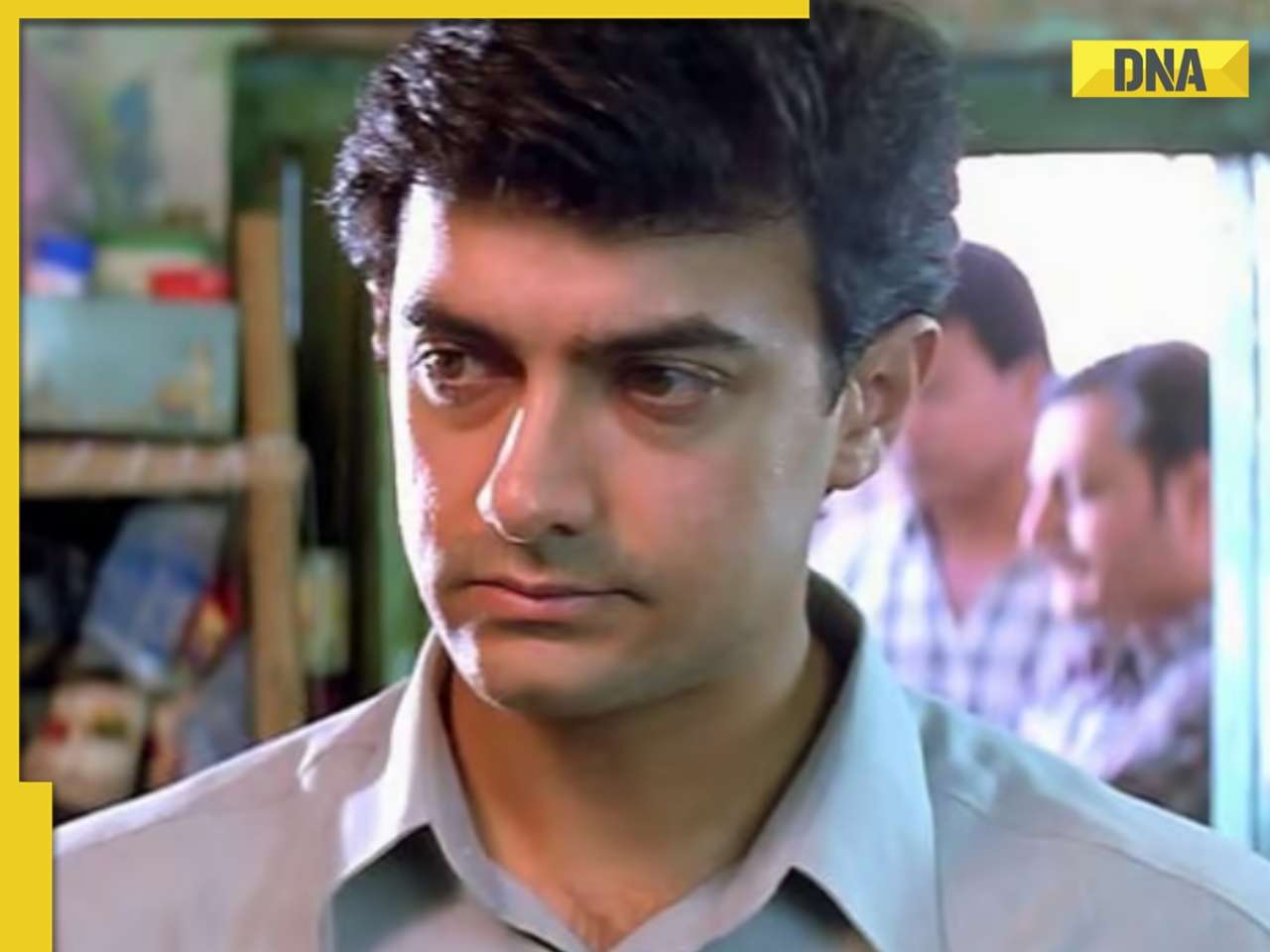
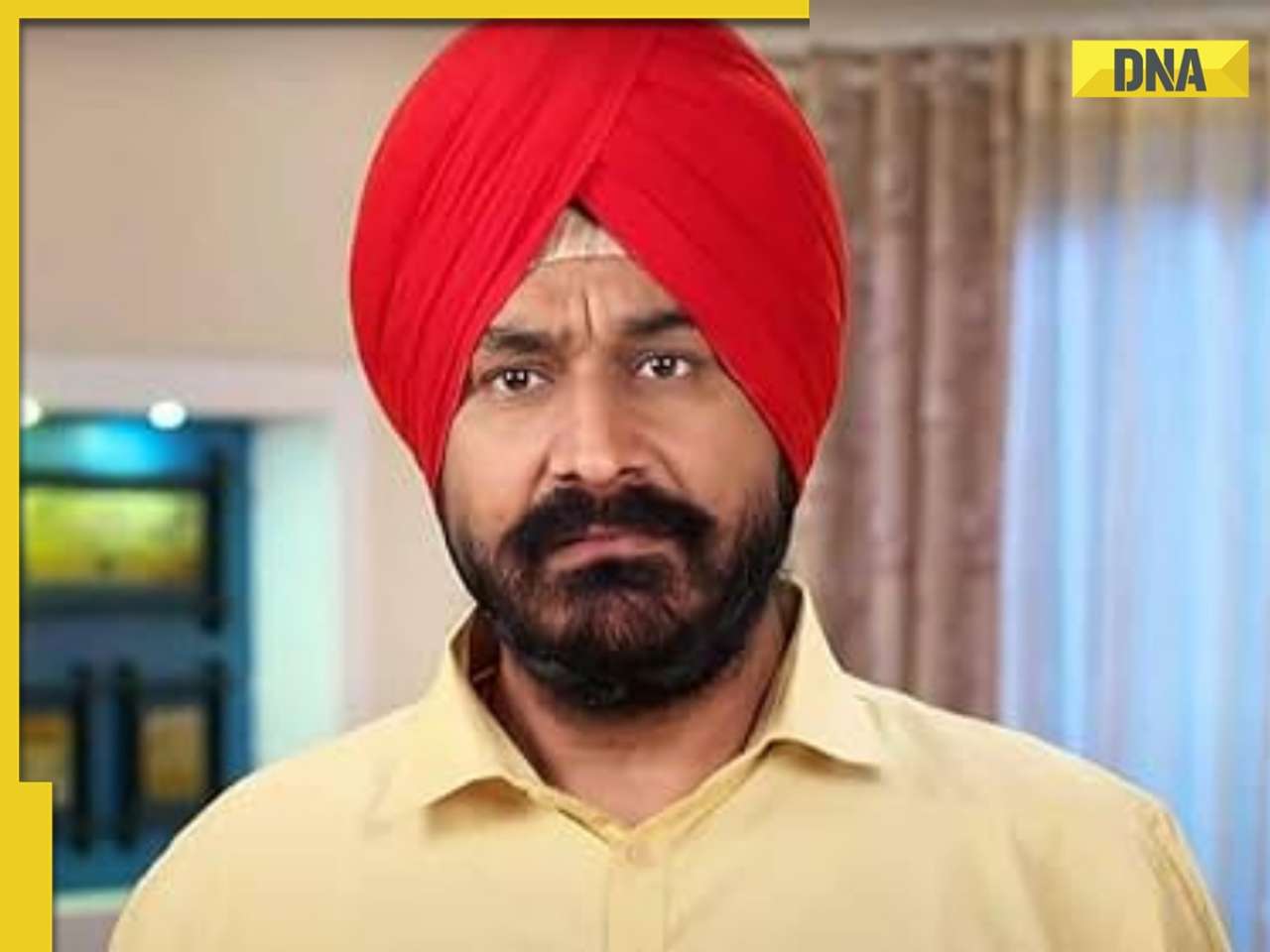
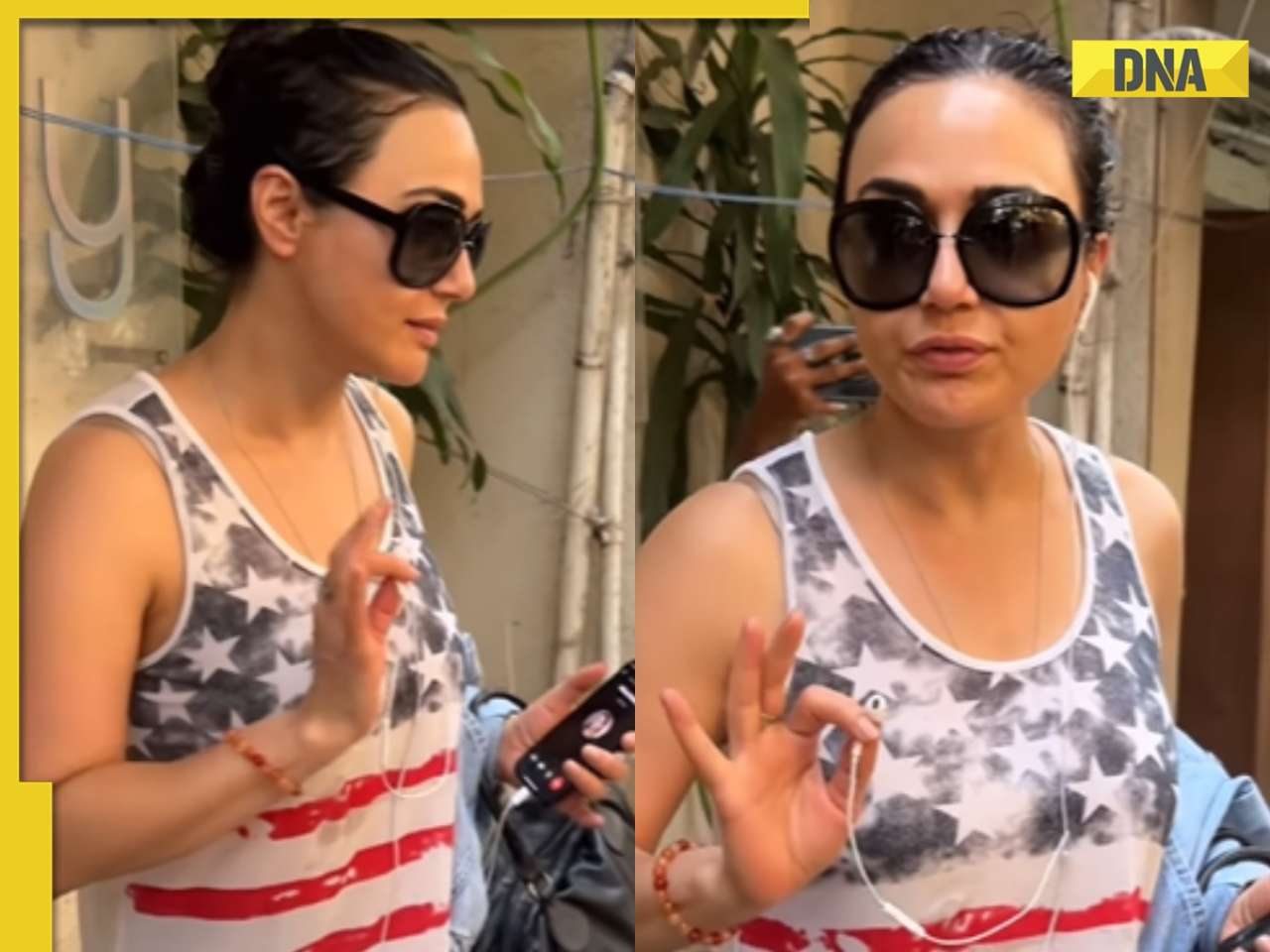






















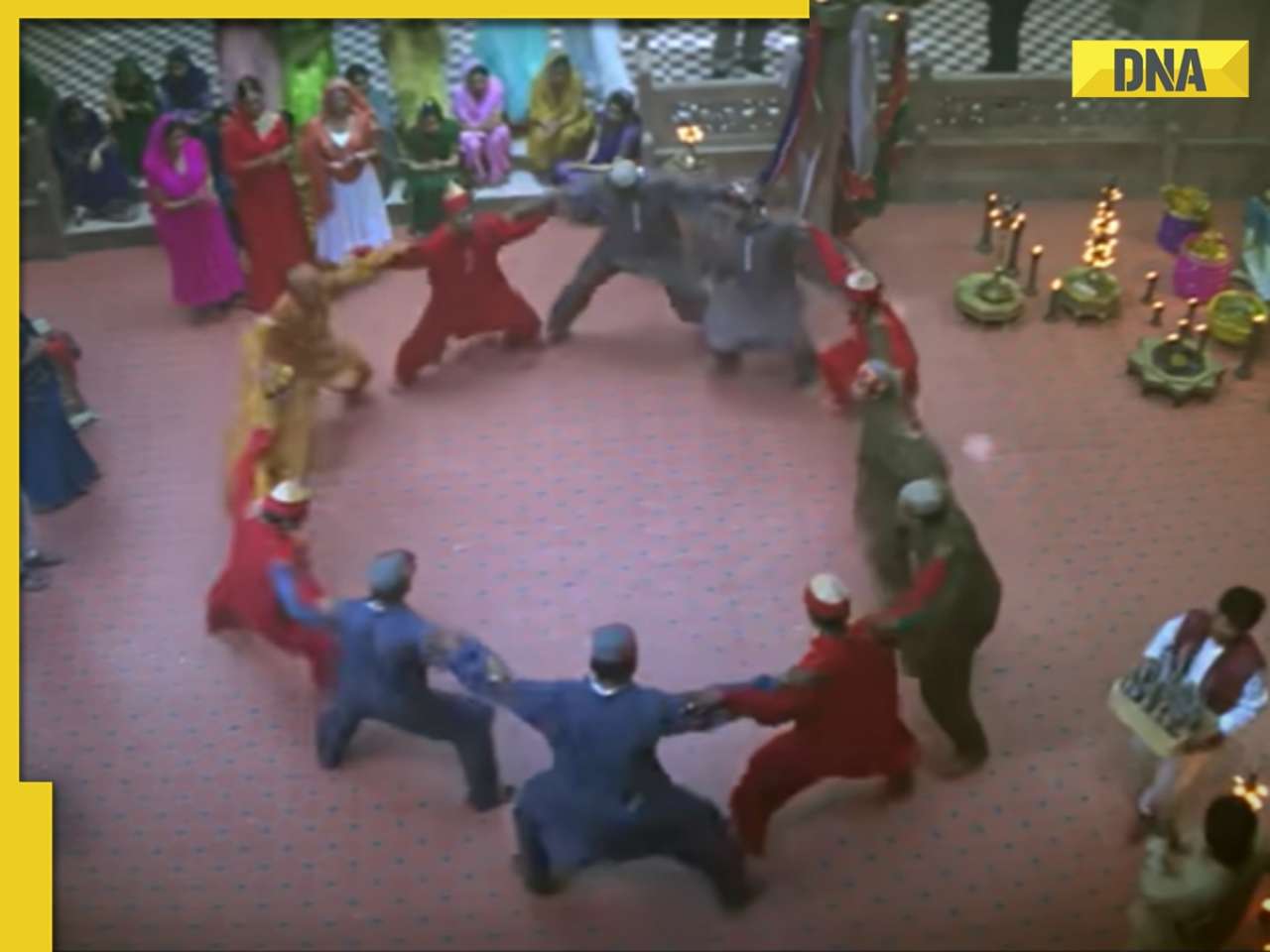
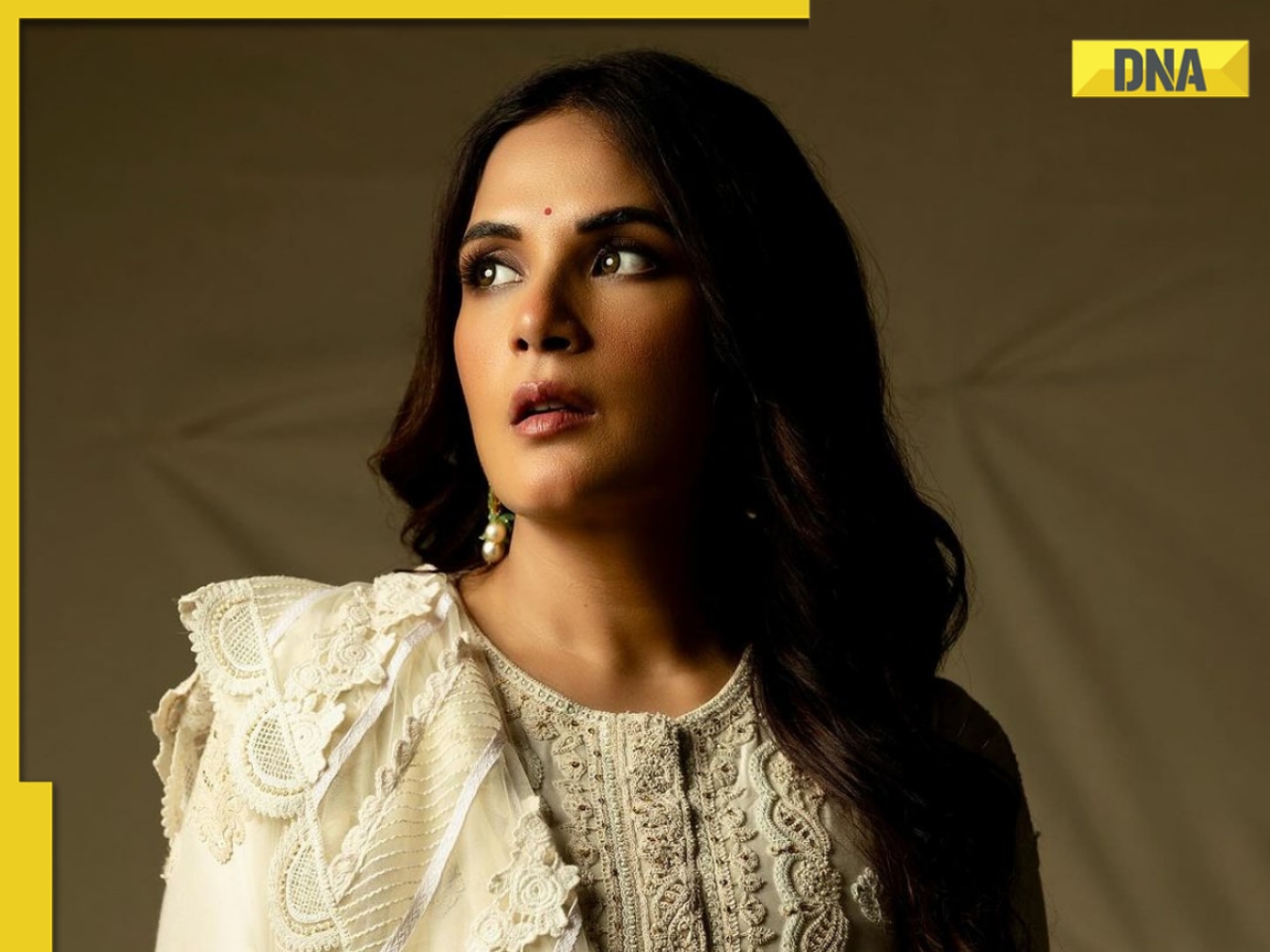
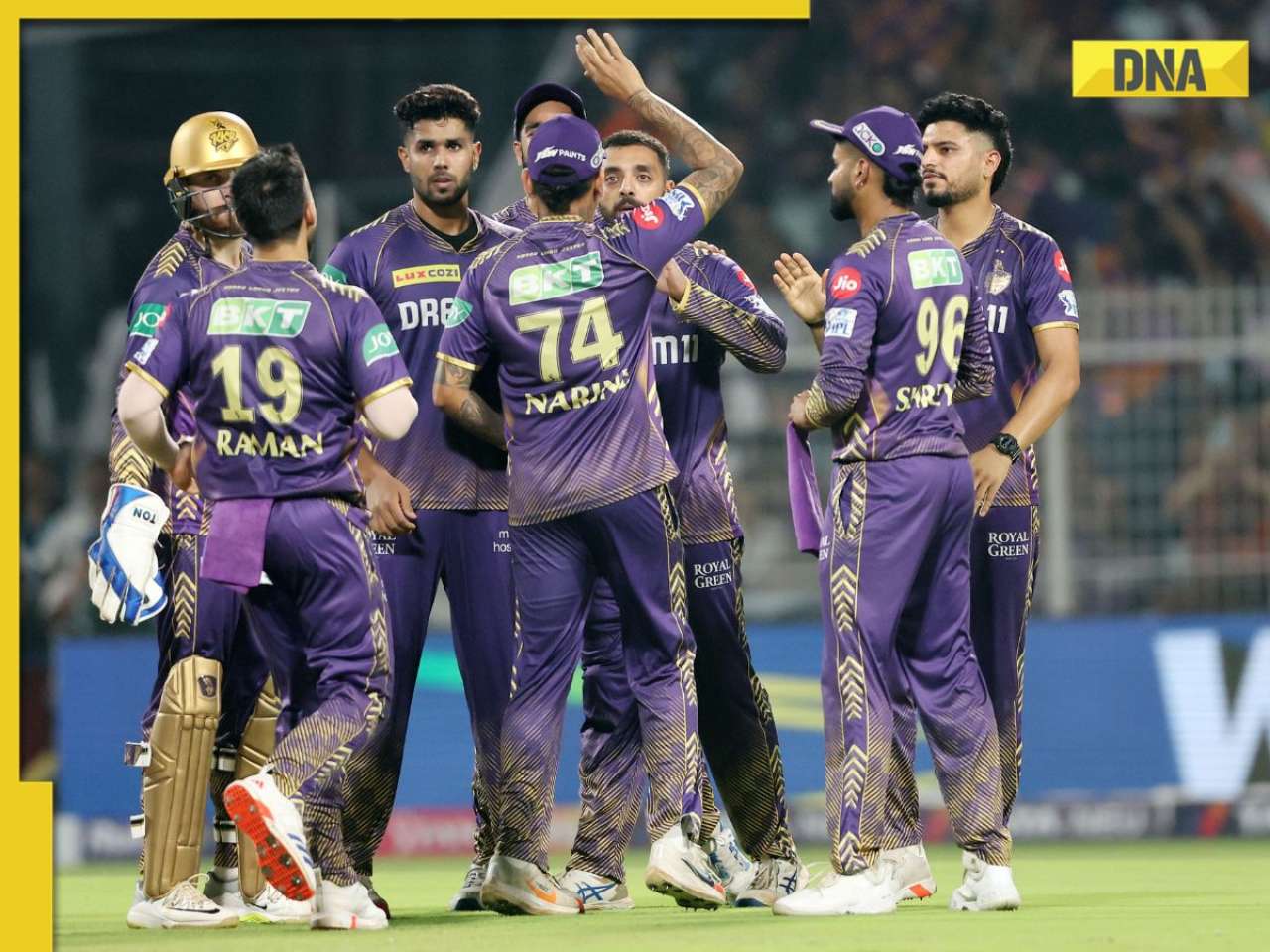
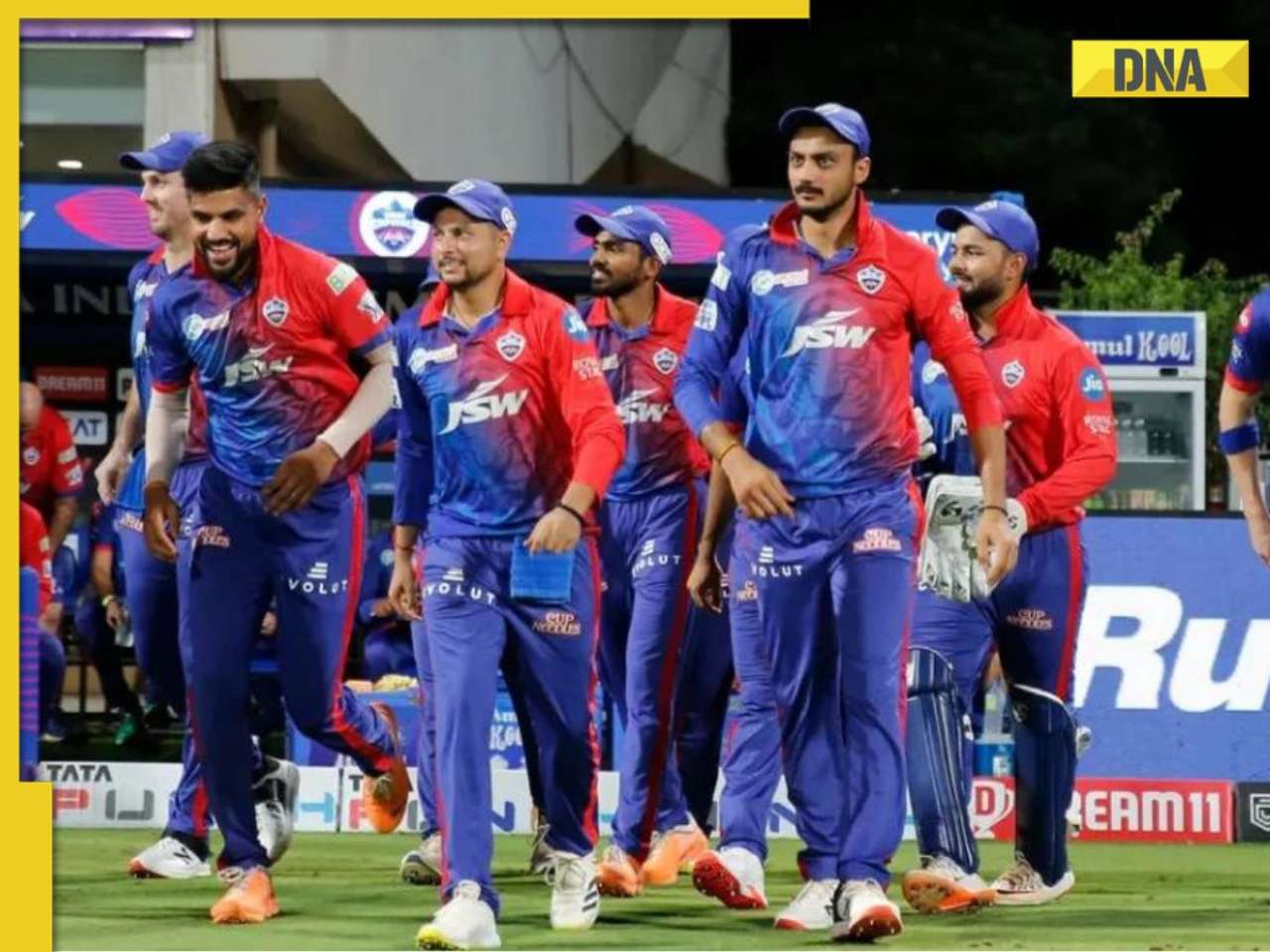
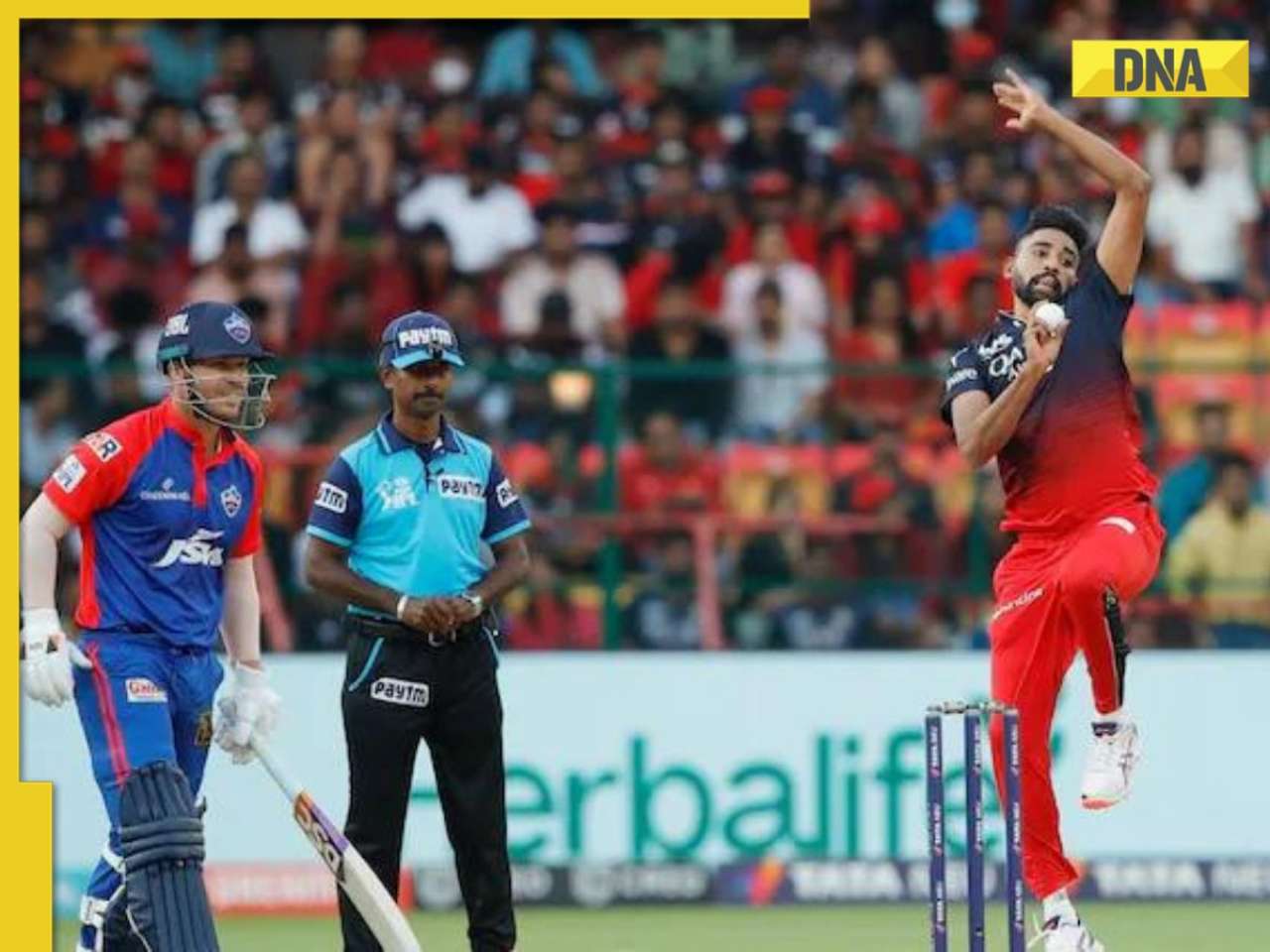
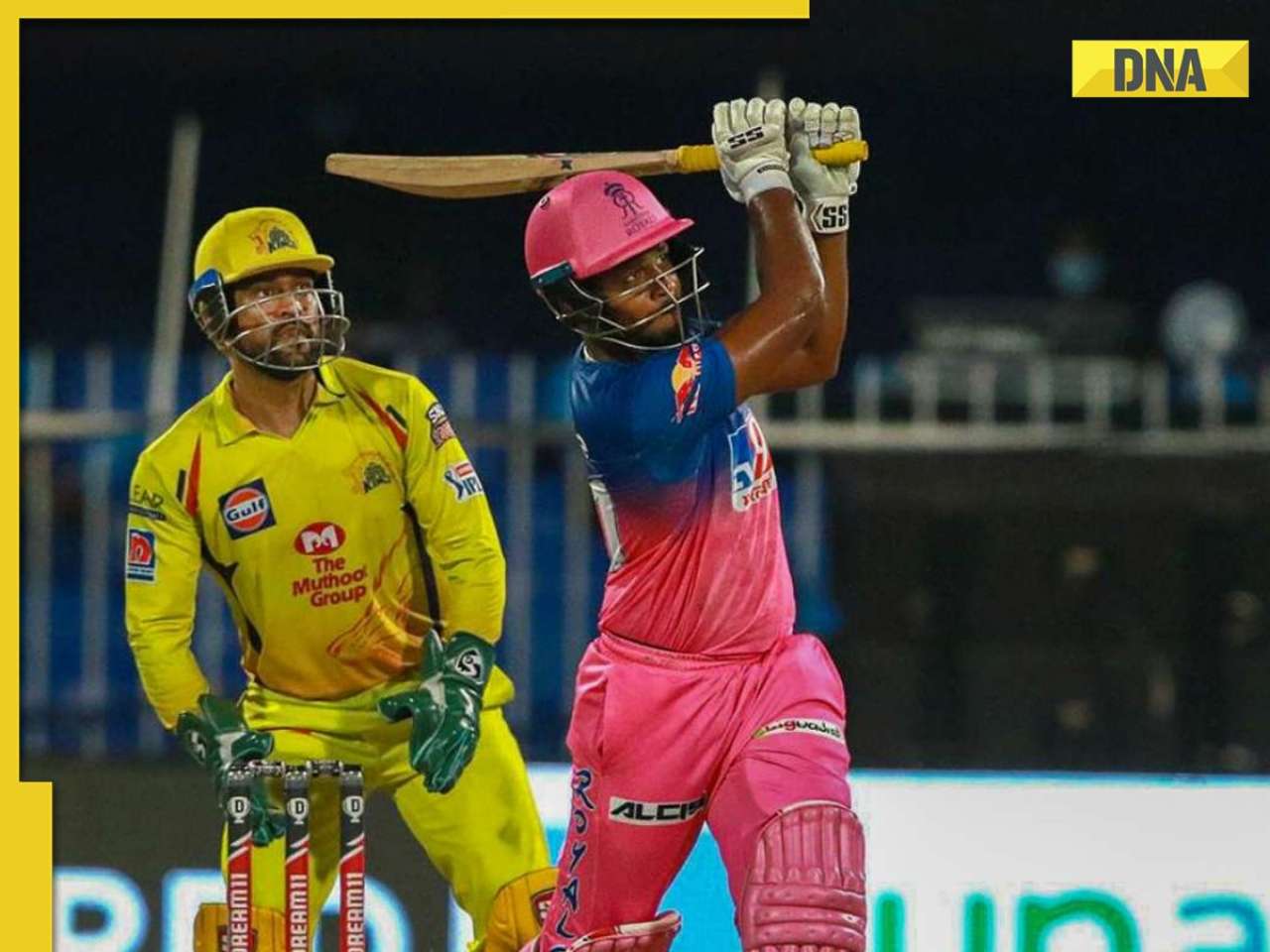
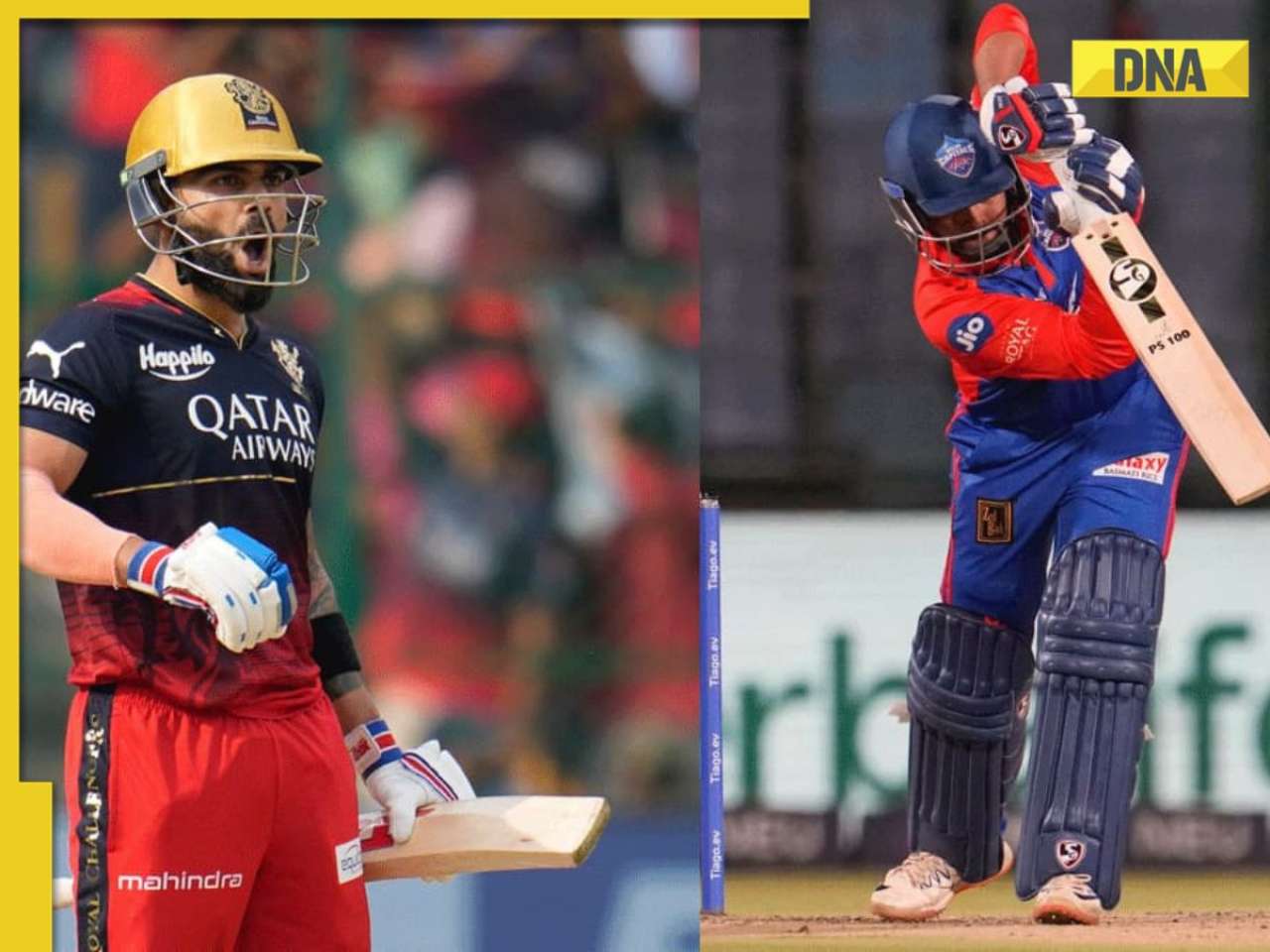


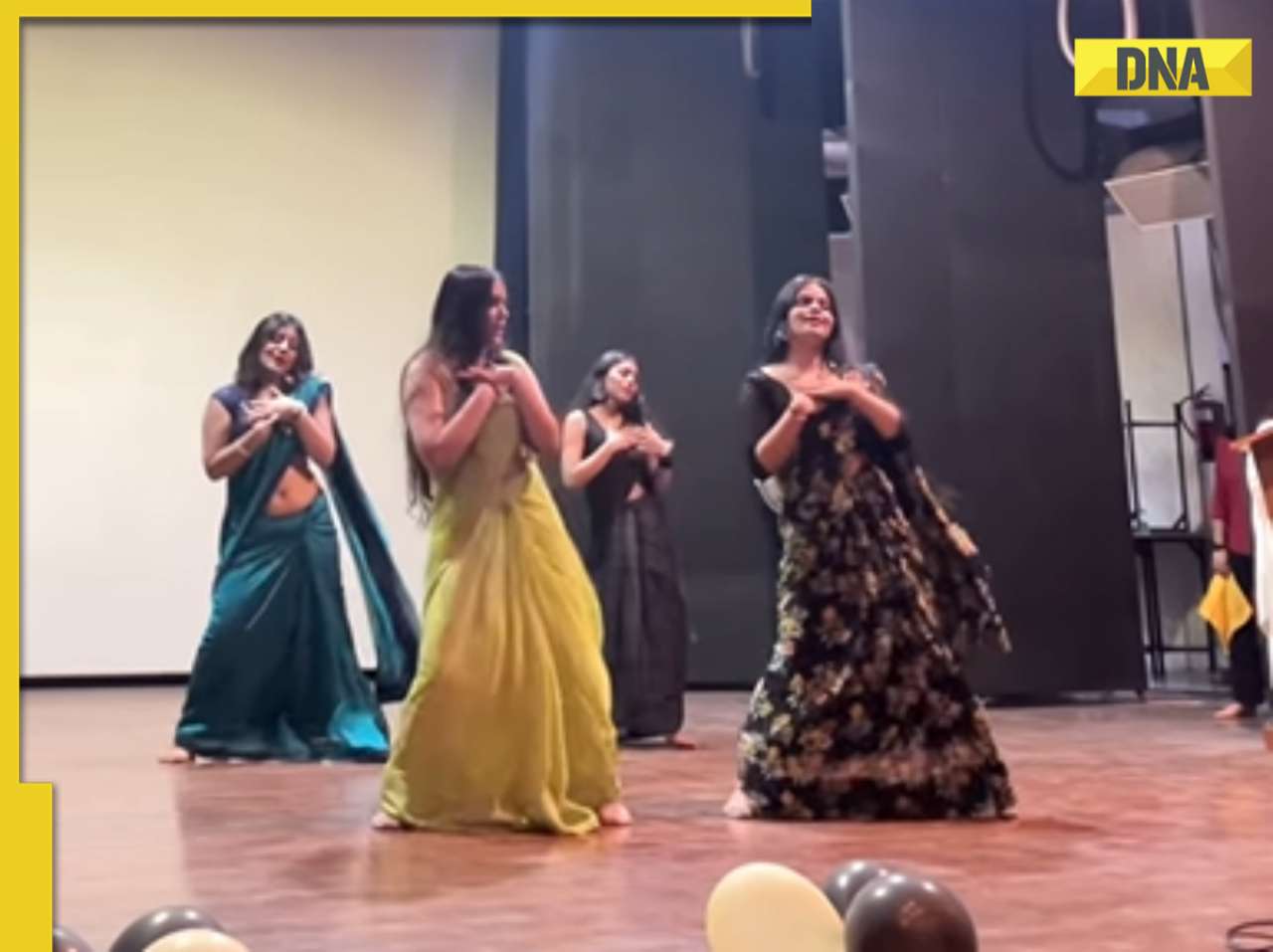


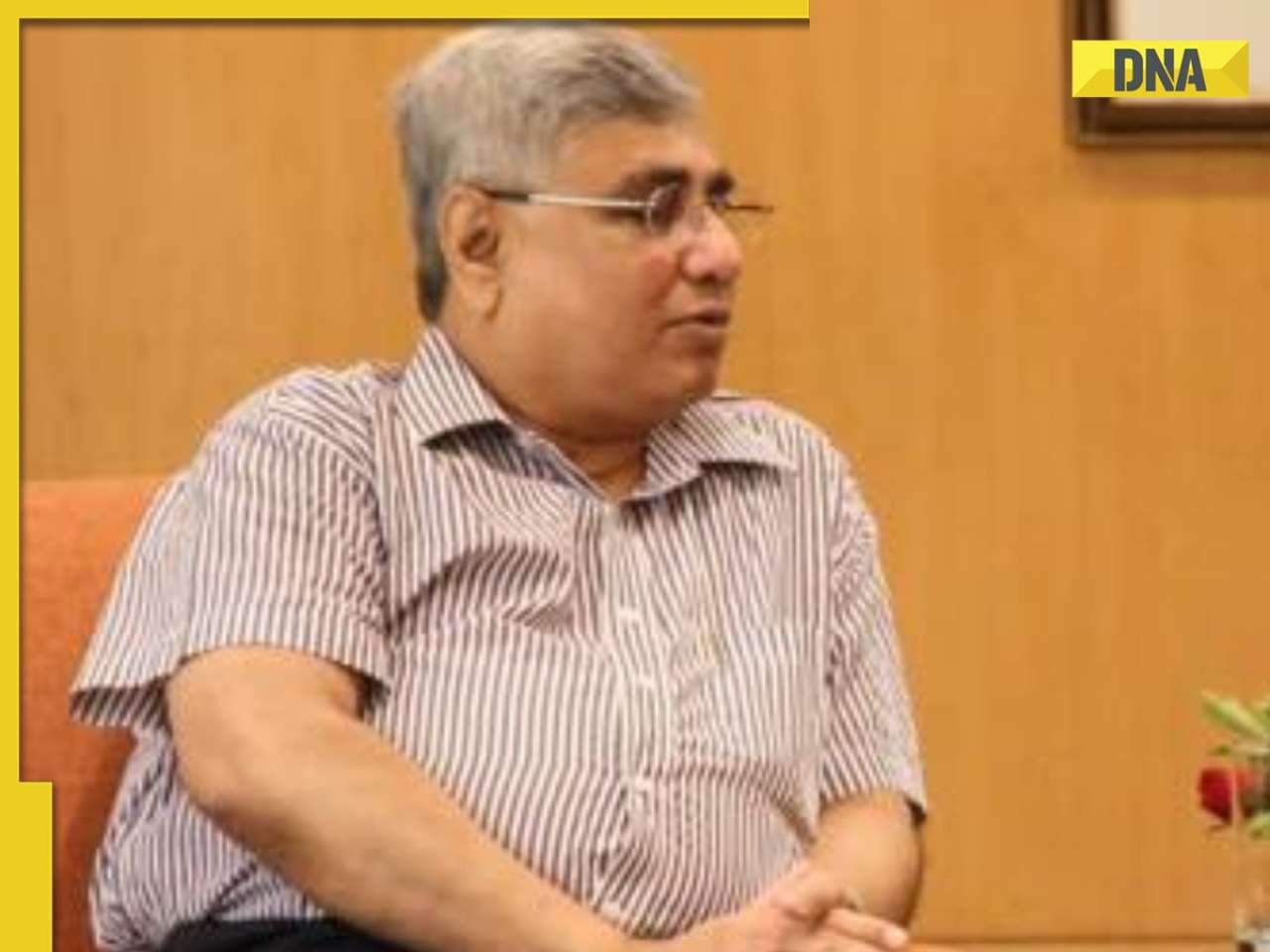
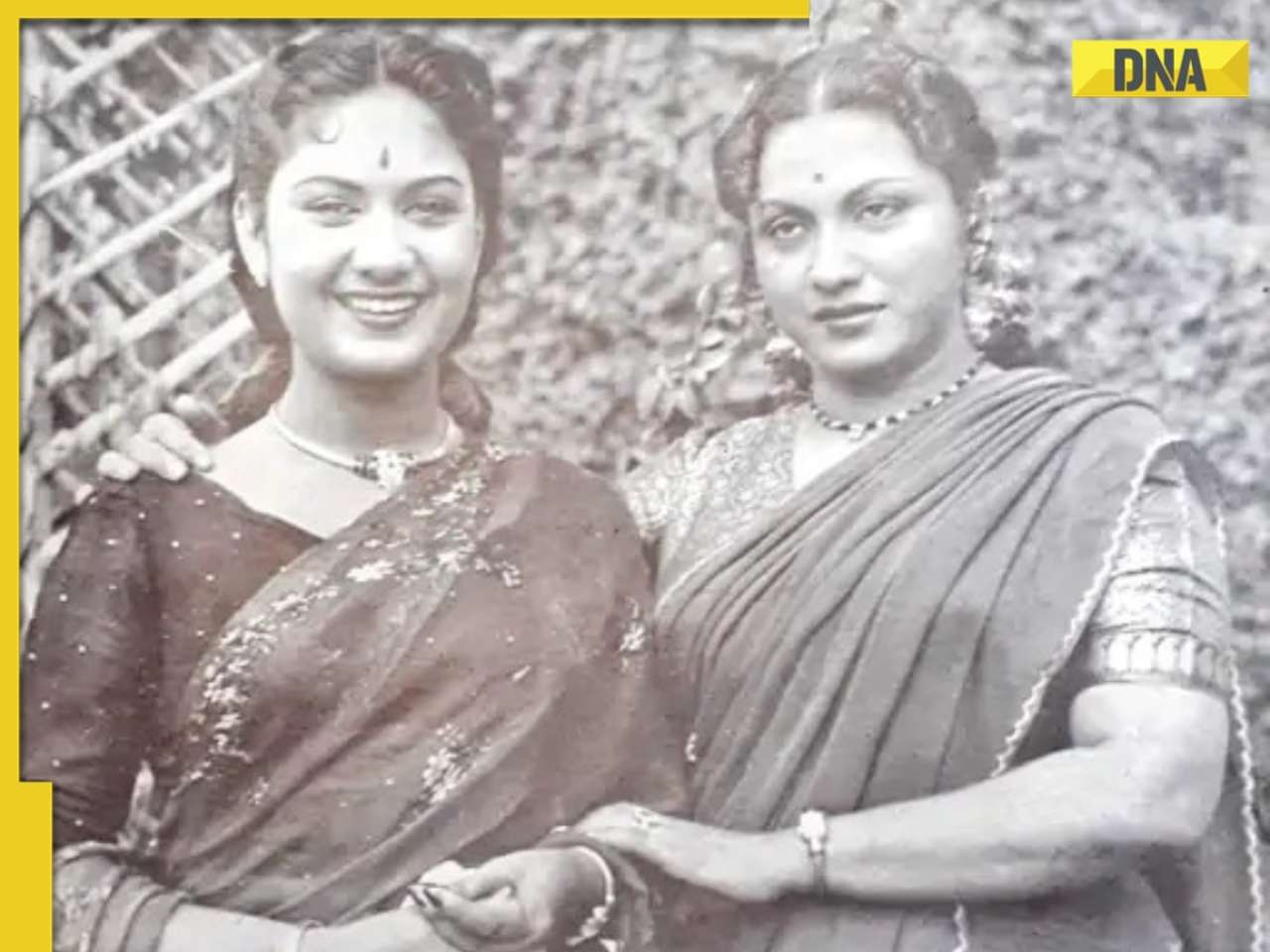
















)
)
)
)
)
)